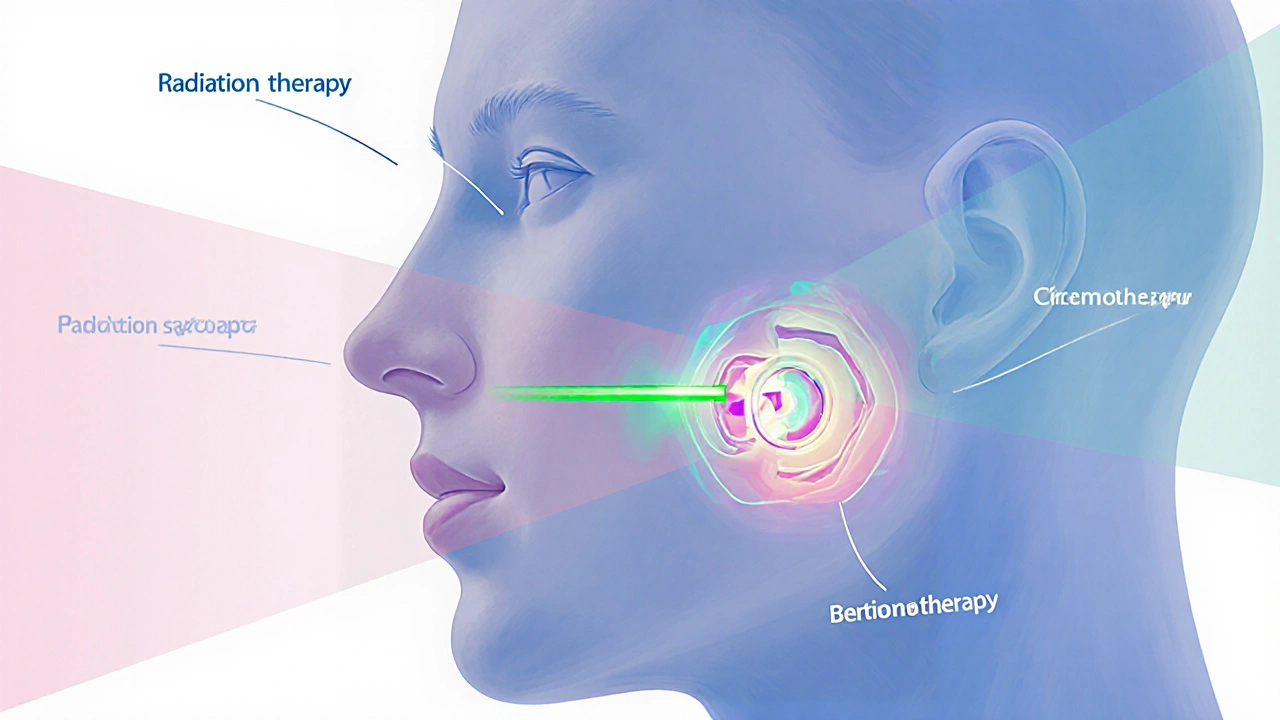
Learn why cancer treatments cause dry mouth, discover practical self‑care, prescription options, and when to seek professional help for effective relief.
When dealing with cancer treatment side effects, it helps to know exactly what you’re facing. cancer treatment side effects, the physical and emotional reactions that occur during or after cancer therapies such as chemotherapy, radiation, or immunotherapy. Also known as oncology side effects, they can range from mild fatigue to serious organ‑specific issues. The reality is that cancer treatment side effects encompass a wide spectrum of symptoms, and each treatment brings its own set of challenges. Chemotherapy, a systemic drug regimen that attacks fast‑growing cells often leads to nausea, hair loss, and peripheral neuropathy. Radiation therapy, targeted high‑energy beams that destroy tumor tissue adds skin irritation, fatigue, and sometimes organ‑specific inflammation. Immunotherapy, drugs that boost the immune system to fight cancer brings immune‑related side effects like colitis, rash, or endocrine changes. Understanding these connections makes it clear why effective side effect management requires early detection and tailored supportive care.
Because each therapy influences side effects differently, the approach to relief has to be just as varied. For chemotherapy‑induced nausea, anti‑emetics taken before treatment and dietary tweaks such as ginger or small frequent meals can dramatically cut the urge to vomit. When radiation hurts the skin, gentle moisturizers, cool compresses, and avoiding sun exposure help the area heal faster. Immunotherapy’s immune‑related reactions often respond to short courses of steroids or specific organ‑targeted meds, but staying in touch with your oncology team is vital to balance treatment benefits against side‑effect risks. Side effect management also means tracking symptoms daily, using tools like symptom diaries or mobile apps, so you and your clinician can spot patterns early. Lifestyle fixes—regular low‑impact exercise, staying hydrated, and prioritizing sleep—support the body’s resilience across all treatment types. By linking each side effect back to its source (chemotherapy, radiation, or immunotherapy), you can apply the most effective remedy without guessing.
Below you’ll find a curated collection of articles that dive deeper into specific reactions, compare medication options, and offer step‑by‑step guides for everyday coping. From mood changes linked to hormonal treatments to practical tips for handling dizziness from various drugs, the posts cover the full range of issues you might encounter while undergoing cancer therapy. Explore the resources to gain actionable insights, and use the information to talk confidently with your healthcare team about the best ways to stay comfortable and stay on track with your treatment plan.

Learn why cancer treatments cause dry mouth, discover practical self‑care, prescription options, and when to seek professional help for effective relief.